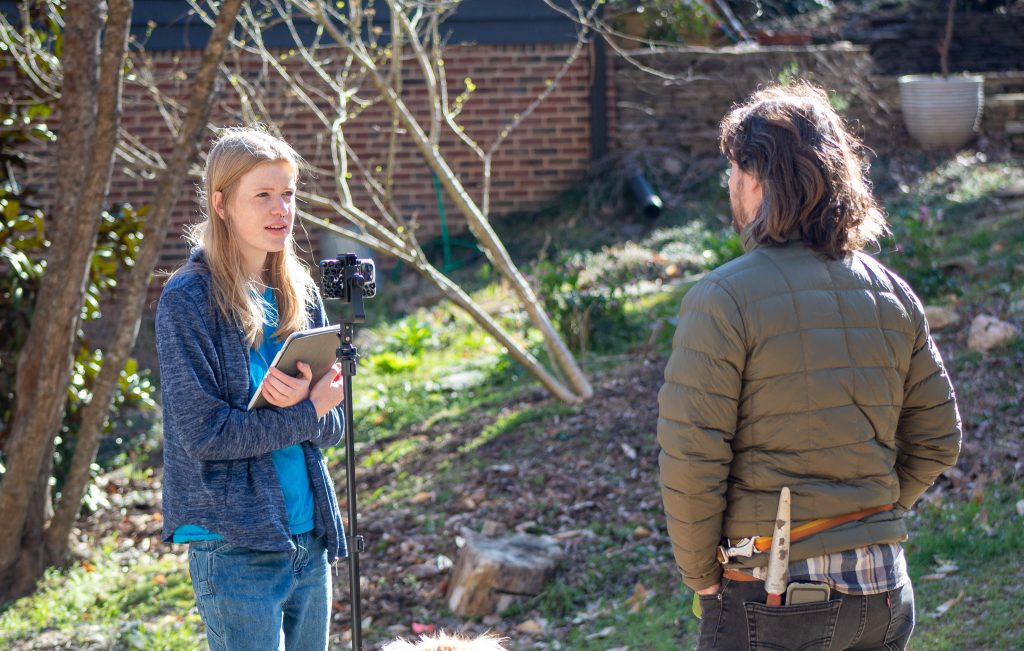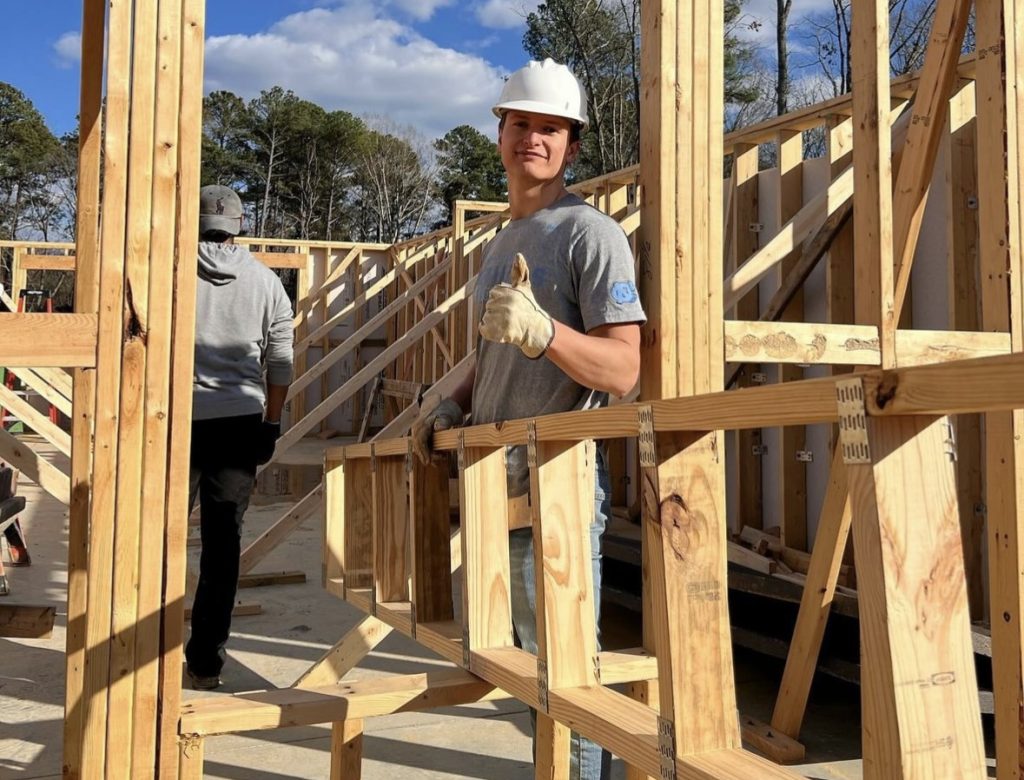Open to undergraduate students of all majors and years, the program is dedicated to the exploration of careers in environment and sustainability.

When Carolina junior Abby Overby was searching for an internship, she knew she wanted to use what she was learning in her environmental studies major to make an impact on her community.
To explore how she could do just that, she turned to EcoStudio.
Founded in spring 2018, EcoStudio helps match Carolina undergraduate students of all majors with environmentally focused, client-based internships at local and national organizations like The Nature Conservancy, Triangle Land Conservancy and Patagonia.
The program is a partnership among the UNC Institute for the Environment, the Institute’s Center for Public Engagement with Science and the Environment, Ecology and Energy Program (E3P) in the College of Arts and Sciences. To date, EcoStudio has matched 466 Tar Heels with internships.
‘A stronger understanding’
This semester, Overby was matched with the Town of Carrboro as their residential stormwater education intern. A Carrboro resident, Overby said the job spoke to her because it allows her to connect with her neighbors and local government and dive into science communications.
Among her diverse job responsibilities, Overby is responsible for creating a documentary to help Carrboro residents understand the town’s ongoing stormwater management improvement, funded by a grant from the Environmental Protection Agency.
“It’s been really cool to find connections between what I’m learning in class and this job,” she said. She remembers learning about topics like water utility management or erosion during her classes and then, later that same day, being able to apply her understanding to her internship work.
“I feel like I’m getting a stronger understanding of what I’m learning in class because I’m able to apply it,” she added.
This opportunity for experiential learning in the field coupled with peer-to-peer learning in the classroom was exactly what the Institute for the Environment’s Brian Naess, co-director of EcoStudio and GIS analyst and lecturer, envisioned when he and Jaye Cable, senior associate dean for natural sciences in the College of Arts and Sciences, founded the program six years ago.
“We have a mix of students, from first-years all the way up to seniors,” said Naess, who added that the mixed-year cohort model allows students to share insights from across classes and life experiences.
Overby said the encouragement from other EcoStudio interns is one of her favorite aspects of the semester.
“We’ve all formed this support system, this network of people that we know we can rely on, count on and check in with for inspiration,” she said.
Preparing for life after graduation
Another component of the program is professional development.
Through meetings, workshops and resources offered by EcoStudio — listed as ENEC 393 and ENEC 493 in Carolina’s course catalogue — throughout the semester, Tar Heels work with Naess and Megan Lane, EcoStudio co-director and public science and internship coordinator for the Institute for the Environment’s Center for Public Engagement with Science, to prepare for life after graduation.
“We look at resumés and cover letters, we do a mock interview session, we look at their LinkedIn [profiles],” said Lane, who also teaches an introductory science communications lesson and Canva design basics workshop for the interns.
By the end of the semester, students have everything they need to tackle their job searches with confidence.
Will Nichols, a senior with majors in environmental studies and business administration, said that EcoStudio has provided “so much help and guidance in terms of how to handle a part-time internship while also juggling classes and other extracurricular commitments.”
Nichols spent this semester interning with the Ackerman Center for Excellence in Sustainability, a long-term partner of EcoStudio. His internship is focused on sustainable textiles and apparel in North Carolina, including researching public funding opportunities.

“It’s such a terrific way to get real-world experience at an internship. It prepares you for life after Carolina and gives you a great window into the environmental space,” he said.
Nichols, an Honors Carolina and Luther Hodges Scholar, balances his EcoStudio internship with running his company, SolarEquity. The nonprofit seeks to empower North Carolina communities through the solarization of affordable housing.
In both roles, Nichols has enjoyed the opportunity to collaborate with others and work “toward one common goal” of advancing sustainable practices in North Carolina.
Mentors pay it forward
EcoStudio’s emphasis on collaboration also takes the form of mentorship. Alumnus Viktor Agabekov ’18, was part of EcoStudio’s first cohort of student interns.
“It was a very open environment to try techniques that are commonplace in the professional world but, at the time as a student, were new to me,” shared Agabekov, who studied economics and environmental studies with a minor in entrepreneurship.
After he graduated, he worked for Sustainable Carolina, an EcoStudio partner, and was able to pay the experience forward as a mentor for current students.
His advice to student interns is to be bold, ask questions and embrace the flexibility that comes with being in an academic environment.
“It’s a point in life where you have enough of a structure around you as a student that you can try new things,” said Agabekov. “And if you don’t like it, then you can do something else.”
When she looks back at the semester, Overby agrees that the opportunity to try something new will be what she takes with her.
“Before I did this internship, I had never even considered the possibility of working in utilities,” she said. “It’s something I have found that I’m actually really interested in and passionate about. I think it has opened a lot of doors that I just didn’t even know existed.”
By Jess Abel ’19, College of Arts and Sciences
